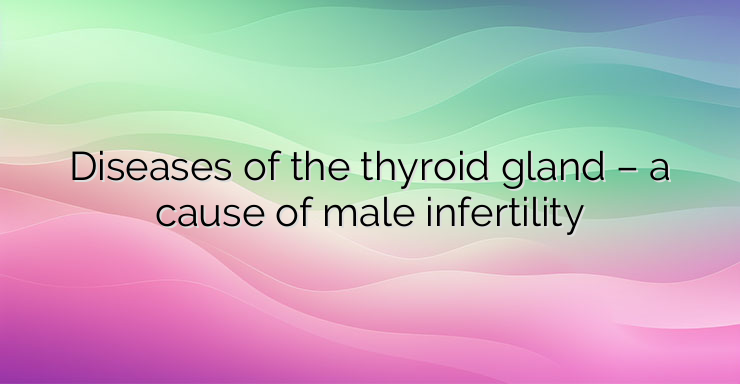Fertility in men is greatly influenced by hormonal balance and the health of the endocrine glands. The most key process that affects the fertilizing ability of the seminal fluid is spermatogenesis – the formation of new sperm. In order for this process to proceed normally, however, it is necessary to precisely regulate the levels of hormones and maintain the serum concentration of testosterone in reference values. Gonadotropins are also required to ensure efficient testicular function. Gonadotropin-releasing hormone controls the secretion of gonadotropins and is key to reproductive health. The function of the hypothalamic-pituitary-gonadal axis can be modulated by axes involving the thyroid and adrenal glands. Thyroid hormones are necessary for the development and optimal functioning of tissues, as well as for the maintenance of numerous metabolic processes. It has long been established that the decreased function of the thyroid gland – hypothyroidism, which is often observed with advancing age, leads to a decreased sexual desire and erectile dysfunction, which have an impact on the possibilities of fertilization during sexual intercourse. Hypothyroidism leads to a decrease in the levels of sex hormone-binding globulin and the serum concentration of testosterone. In case of decreased thyroid gland function, decreased levels of luteinizing hormone – LH and follicle stimulating hormone – FSH are also observed. When this condition is prolonged, a decrease in the functions of the Leydig and Sertoli cells is observed, which disrupts the effective maturation of the spermatozoa. Although the amount of these cells in the testes increases, the number of mature and functional spermatozoa significantly decreases. High levels of the thyroid hormone tetraiodothyroxine – T4 are associated with an increased concentration of sperm in the seminal fluid. On the other hand, hypothyroidism lowers the number and percentage of spermatozoa with correct morphological characteristics, impairs their motility and lowers the volume of seminal fluid. Furthermore, decreased thyroid function leads to histological abnormalities in testicular cells. This supports the suggestion that low levels of luteinizing and follicle-stimulating hormone may lead to changes in the number of immature progenitor cells in the seminiferous tubules. Both decreased and increased thyroid gland function – hyperthyroidism has a negative impact on seminal fluid parameters. Decreased testosterone levels are observed in affected patients. In addition, the motility of the spermatozoa deteriorates, the volume of the ejaculate decreases, as well as the concentration of functionally fit male sex cells in it. The morphology of the spermatozoa is significantly disturbed. References: https://www.ncbi.nlm.nih.gov/pmc/articles/PMC8779600/


Leave a Reply